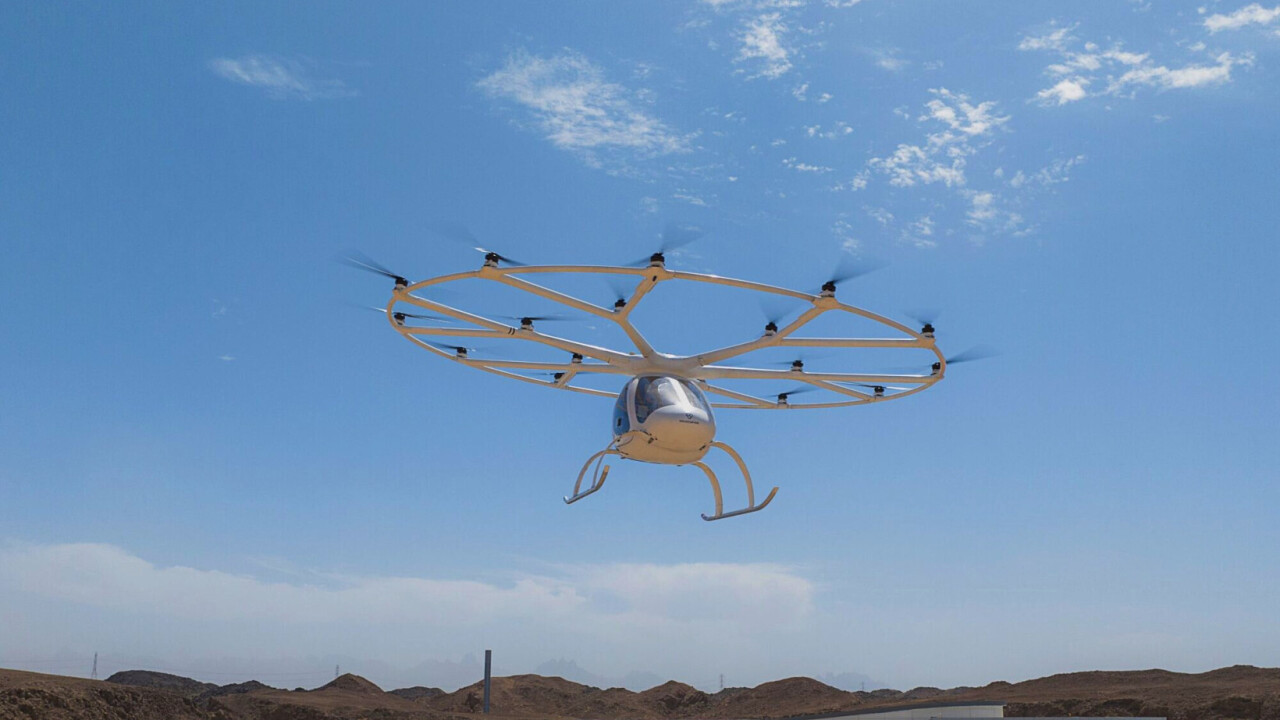
Volocopter won’t be operating an air taxi service at the Paris Olympics after all, following a delay in the certification of its aircraft’s engine, AFP reports.
The setback deals a major blow to the German startup, which has been lobbying hard for several months to get its electric vertical takeoff and landing (eVTOL) vehicles ready in time for the Games.
In July, French authorities cleared Volocopter’s two-seater, 18-rotor craft for takeoff. The mini-copters were going to whisk passengers, including French president Emmanuel Macron, to and from a “vertiport” built on a barge on the River Seine.
However, certification for the air taxi’s engines has been delayed by a few weeks, spluttering the plans. Volocopter CEO Dirk Hoke told AFP that the hold up was due to “an American supplier who was not capable of providing what he had promised.”
However, Volocopter will conduct test flights without passengers at an aerodrome in the town of Saint Cyr l’Ecole, west of Paris, today and on Sunday.

Hot air (taxi)?
Volocopter, which has raised over $750mn in funding, hoped that operating flights at the Paris Olympics would draw global attention to its technology.
Air taxi startups and their backers believe the electric aircraft could offer a low-carbon alternative to cars, reducing congestion in cities. Some, including Volocopter, even plan to use them as emergency rescue or medical vehicles.
However, air taxis have so far yet to live up to the hype — and the million-dollar bets of deep-pocketed venture capitalists.
Startups like Volocopter, the UK’s Vertical Aerospace, and Lilium have all faced delays in bringing their eVTOLs to market. This is partly because designing, building, and certifying a completely new type of aircraft is a complex, lengthy, and exceedingly expensive process .
What’s more, current versions of the aircraft can only shuttle around a handful of passengers at most, drawing criticism for being a transport solution aimed at the elite. Paris City Hall has described Volocopter’s Olympics plans as “absurd” and an “ecological mistake.” One councillor described the project as “a useless and hyper-polluting gadget for a few ultra-privileged people in a hurry.”
Nevertheless, Volocopter remains committed to getting its eVTOLs off the ground. Following the Olympics, the company will carry out two years of test flights in the Paris region. Hoke called this as a “learning period” designed to win over the public’s trust.
Volocopter will need €25mn-€30mn for the two years of demonstration flights around Paris, according to the AFP — and between €200mn-€300mn to come to market.
In May, the Financial Times reported that Volocopter was in “urgent talks” to secure fresh funding to fuel its growth plans. The startup was in talks with existing and new European-based investors to support the “stabilisation of the company,” Hoke told the paper.
Volocopter is currently building a new aircraft with four seats that could be ready by late 2026, early 2027. Although, if the track record of eVTOL startups is anything to go by, I’d take that timeline with a big pinch of salt.
Get the TNW newsletter
Get the most important tech news in your inbox each week.





